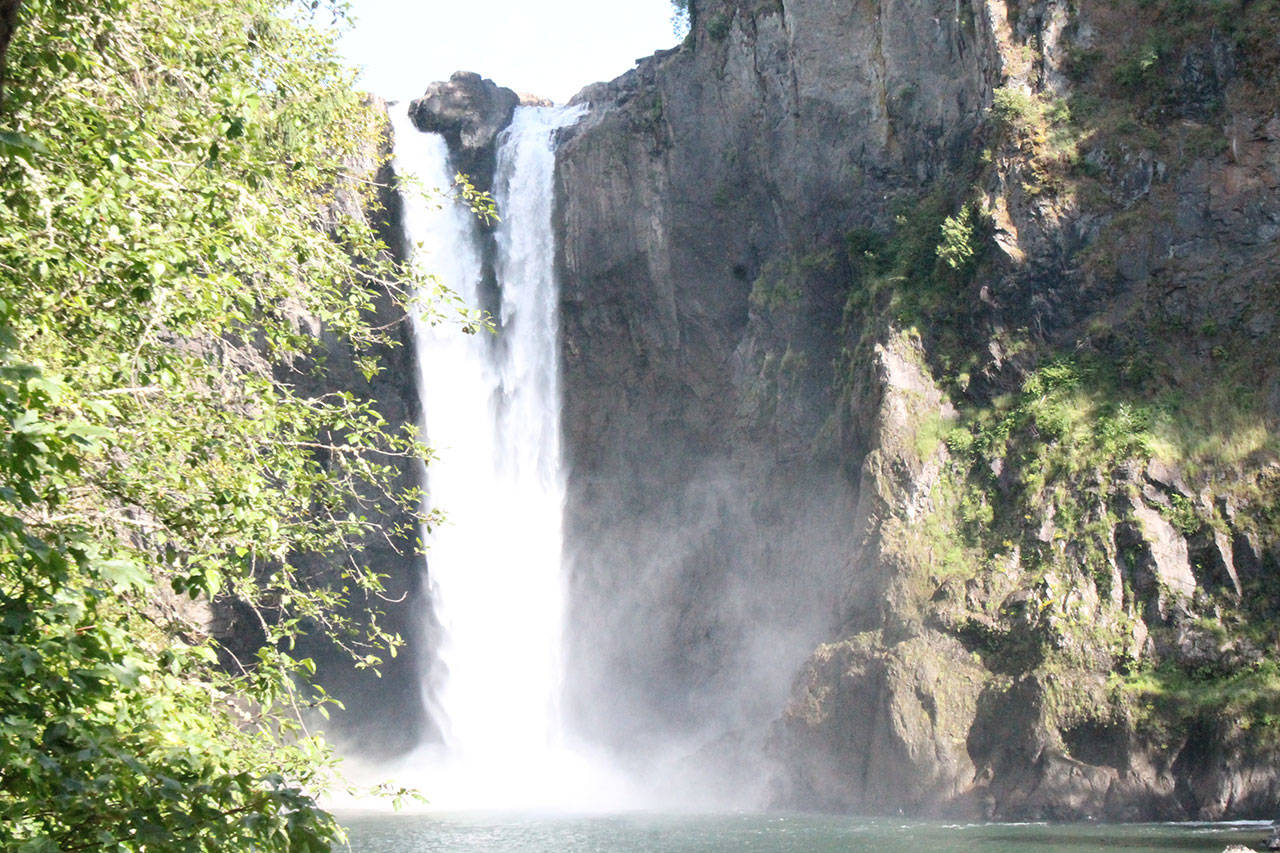Puget Sound is known for its often overcast skies and has a reputation for rain, but even in one of the wettest parts of Washington state, climate change could affect agricultural water uses.
Some farmers in the Snoqualmie Valley said warmer, drier summers have changed how they irrigate their crops, including Ryan Lichttenegger of Steel Wheel Farm. Lichttenegger started farming in the Valley in 2006 and said they barely had to set up irrigation and used what water they had for a couple months during the summer.
“Now in 2018 I can’t imagine farming without setting up irrigation right away,” he said.
His farm needs to upgrade its own irrigation infrastructure, which sometimes doesn’t put down enough water to adequately irrigate his crops. He also irrigates early in the morning and late at night to help prevent evaporation. A lack of rainfall during the summer has turned running irrigation into a full time job.
“We’ve lost quite a few plants because we’ve planted and not been able to irrigate right away or thought that it was going to rain and it didn’t,” Lichttenegger said.
Plants can become stressed during dry, hot summers, leading to crop failures. Potatoes split, broccoli that once matured in July either bolt up or don’t produce and insects have an easier time feeding on water-stressed plants. Additionally, if farmers use overhead irrigation it can increase humidity and contribute to plant disease.
Kevin Haggerty owns Lettuce Love Farm which only opened last year. Haggerty said he hasn’t had a chance to see his water use change from year-to-year, but he did notice that last spring was wet, followed by a very dry summer.
“We can’t rely on precipitation to water crops, so we have to pump from the river for irrigation to germinate seeds and keep our plants growing,” he said.
Since the 1980s, much of the agriculture in the Snoqualmie Valley has moved from dairy farming to vegetable crop production. That change has increased the demand for water and created a need for management and a secure source of water. The Snoqualmie Valley Preservation Alliance (SVPA) in recent years formed the Watershed Improvement District, which subsequently acquired the Tokul Creek water rights for farms in the valley, creating a steady supply to farmers with water pulled from the Snoqualmie River.
SVPA director Cynthia Krass said this shift from dairy to produce has been the primary driver of water use changes in the valley, although she has heard concerns from farmers about future water use.
“The crop type change has had more to do with changes in irrigation practices than a long-term kind of change in climate,” she said.
Krass said farmers may not necessarily be using more water due to climate change. Dairy farms often grow hay and feed grasses for their animals, which often don’t require as much water as vegetables. Krass said there is anecdotal accounts of changes to water use and that it changes year-to-year. Haggerty said in the future, farmers will likely need more water to deal with hotter summers.
However, expected changes to mountain snowpack are likely to have dramatic effects on the Snoqualmie River. Stephen Hirschey, King County Department of Natural Resources water quality planner, said a good portion of the river’s flow comes from snowpack.
“The Snoqualmie, at least upper basin above the falls, is much more of a snow driven system,” he said.
At an October meeting held in Carnation, University of Washington climate scientist Dr. Crystal Raymond said the effects of climate change will be felt most acutely through water resources during this century. The wet season will become wetter and the summer drier, while higher temperatures will reduce snowpack. In most low-lying areas of the mountains in Puget Sound, snowpack will shrink more than 75 percent by the 2080s. Already since the mid-20th century, the snowpack in Washington state has decreased by about 25 percent as warmer winter temperatures turn snowstorms into rain on the Cascade Mountains.
It is unclear how those changes will affect water availability in a tangible way for farmers, and the more severe effects may still be decades away. As summers become hotter, farmers like Lichttenegger may begin switching the crops they grow. Crops that do well in hot weather include cucumbers, peppers, tomatoes and onions. Other crops will likely fall by the wayside, including head lettuce or summer-grown cauliflower or cabbage. Those are crops Steel Wheel Farm used to grow during the summer until recently.
“When you lose them you shrug your shoulders and you plant something different,” Lichttenegger said. “… It may just be an evolution of what we grow in the valley and things change.”


